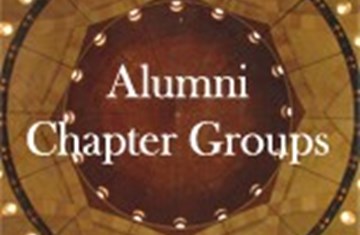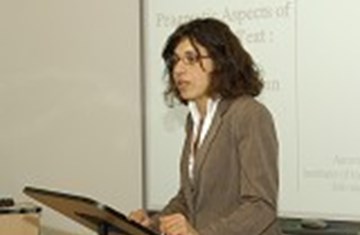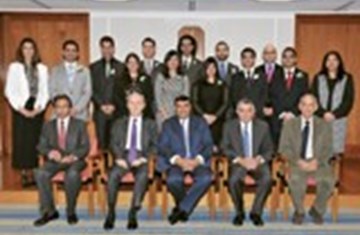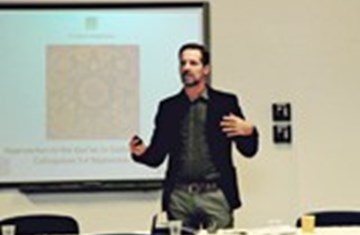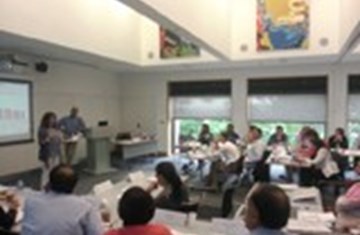IIS Research Associate Presents on Post-Mongol Muslim Communities
Dr Orkhan Mir-Kasimov of the Institute’s Department of Academic Research and Publications presented a paper at the seminar, The Current State of Research on Medieval Islam (Actualités de la recherche sur l’Islam medieval) organised by the Laboratory of Medieval Islam at the French National Centre for Scientific Research (CNRS) and the Université Paris 1 Panthéon-Sorbonne.
The paper, entitled Ongoing Research on the Esoteric, Syncretistic and Messianic Currents in the Post-Mongol Islam (Recherches en Cours sur les Courants ésotériques, Syncrétistes et Messianiques dans l’Islam Post-Mongol), reviewed the progress of a collective research project entitled ‘Reconsidering Normativity in Post-Mongol Muslim Communities’ that Dr Mir-Kasimov has coordinated since 2009, during his time at both the Institut d’Etudes Avancées de Nantes in France and Institut für Islamwissenschaft, Freie Universität, Berlin.
The project is an attempt to outline a specific current of political and doctrinal thought within Islam, the distinctive features of which are: a strong messianic orientation; syncretistic esoteric doctrines including elements of ‘natural’ sciences (such as alchemy, astrology, science of letters and numbers), and non-Islamic religious traditions. Such considerations are an important factor when studying the evolution of the ‘standard’ references of Islam.
Furthermore, the project puts forth that the syncretistic approach of some Post-Mongol Muslim communities, who may be open to influences from outside the Islamic world, sometimes results in a tendency to adopt a universalist approach to Islam. This aspect renders these communities an important channel of exchange between different faiths such as those from the Abrahamic traditions as well as non-monotheistic traditions such as Turko-Mongolian Shamanism or some traditions of the Indian sub-continent. Crossing the borders, many of these communities evolved in realms and empires other than their original homeland.
Dr Mir-Kasimov’s paper included a presentation on the scope of the project, which has included a number of workshops and conferences and was initiated and supported by a number of research institutions, including the CNRS, the Institute for Advanced Studies of Nantes in France, Alexander von Humboldt Foundation, and the Free University of Berlin in Germany.
During the course of his presentation, Dr Mir-Kasimov also discussed the publications of the proceedings of the workshops and conferences: the first volume, The Nusayris and the Druzes, two esoteric communities at the doctrinal periphery of Islam (Les Nusayris et les Druzes, deux communautés ésotériques à la périphérie doctrinale de l’islam), appeared as the special issue of Arabica, Volume 58/1-2 (2011) and another volume on The ‘Norm’ and ‘Transgression’ in Islam is in preparation.

